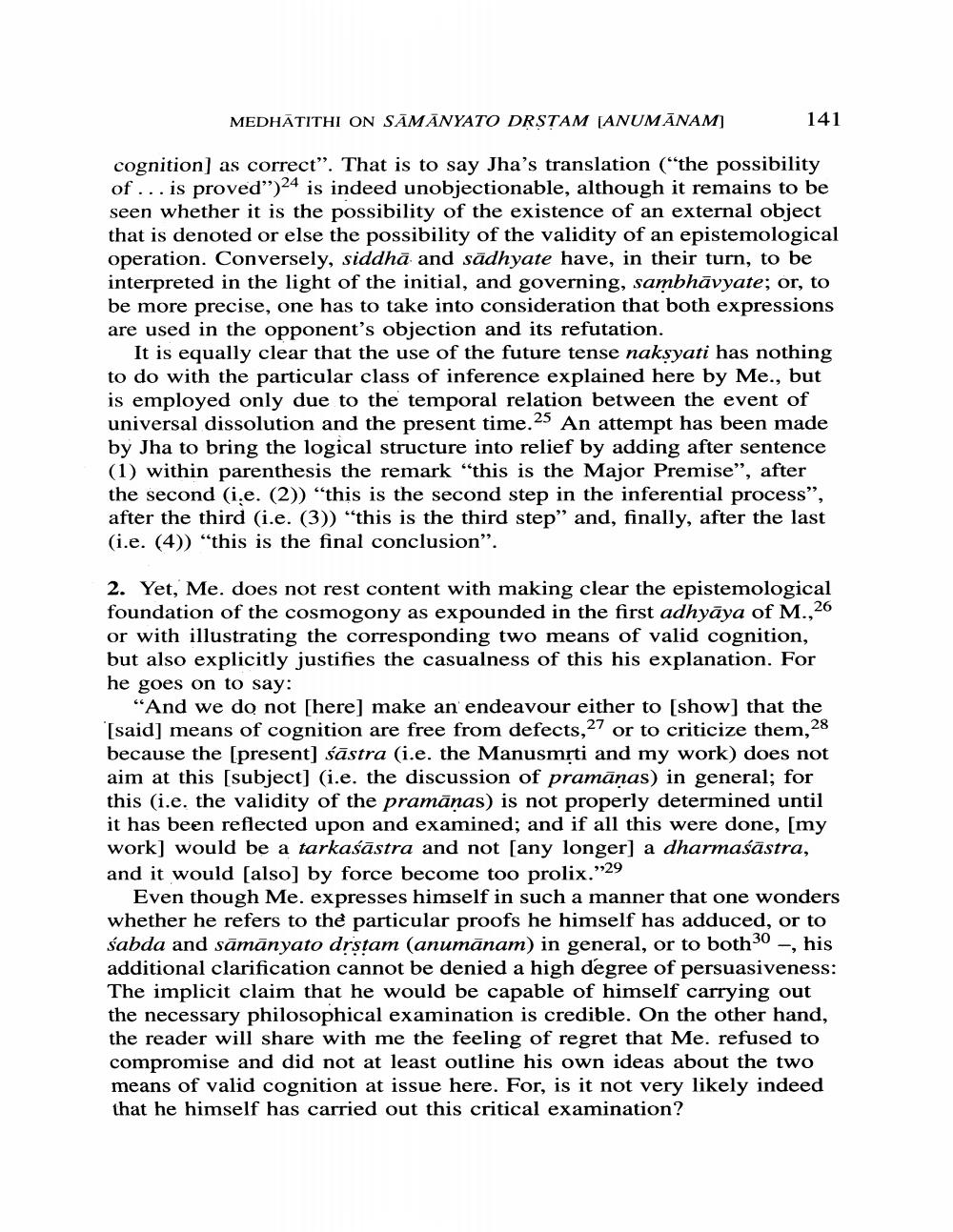________________
MEDHATITHI ON SĀMĀNYATO DRSTAM (ANUMĀNAM]
141
cognition) as correct". That is to say Jha's translation (“the possibility of ... is proved")24 is indeed unobjectionable, although it remains to be seen whether it is the possibility of the existence of an external object that is denoted or else the possibility of the validity of an epistemological operation. Conversely, siddhā and sādhyate have, in their turn, to be interpreted in the light of the initial, and governing, sambhāvyate; or, to be more precise, one has to take into consideration that both expressions are used in the opponent's objection and its refutation.
It is equally clear that the use of the future tense naksyati has nothing to do with the particular class of inference explained here by Me., but is employed only due to the temporal relation between the event of universal dissolution and the present time. 25 An attempt has been made by Jha to bring the logical structure into relief by adding after sentence (1) within parenthesis the remark "this is the Major Premise", after the second (i.e. (2)) “this is the second step in the inferential process", after the third (i.e. (3)) "this is the third step" and, finally, after the last (i.e. (4) “this is the final conclusion".
2. Yet, Me. does not rest content with making clear the epistemological foundation of the cosmogony as expounded in the first adhyāya of M.,26 or with illustrating the corresponding two means of valid cognition, but also explicitly justifies the casualness of this his explanation. For he goes on to say:
“And we do not [here] make an endeavour either to [show] that the [said] means of cognition are free from defects,27 or to criticize them, 28 because the (present] śāstra (i.e. the Manusmrti and my work) does not aim at this [subject] (i.e. the discussion of pramānas) in general; for this (i.e. the validity of the pramānas) is not properly determined until it has been reflected upon and examined; and if all this were done, (my work] would be a tarkaśāstra and not [any longer] a dharmaśāstra, and it would [also] by force become too prolix."29
Even though Me. expresses himself in such a manner that one wonders whether he refers to the particular proofs he himself has adduced, or to sabda and sāmānyato drstam (anumānam) in general, or to both30 -, his additional clarification cannot be denied a high degree of persuasiveness: The implicit claim that he would be capable of himself carrying out the necessary philosophical examination is credible. On the other hand, the reader will share with me the feeling of regret that Me. refused to compromise and did not at least outline his own ideas about the two means of valid cognition at issue here. For, is it not very likely indeed that he himself has carried out this critical examination?




